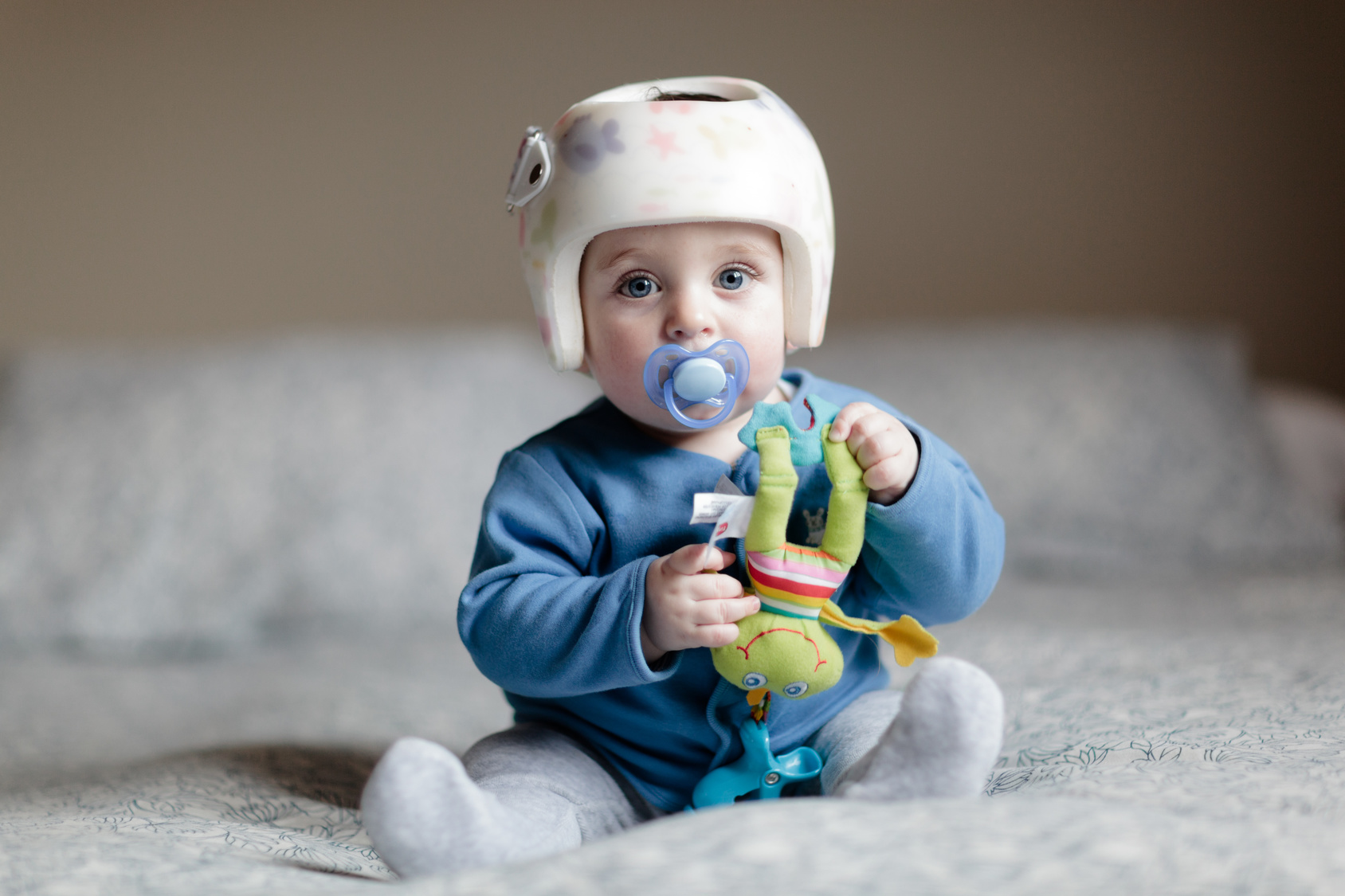We know that parents can get stressed and worried about their baby’s sleep even in the best of times. Throw any type of illness or medical situation into the mix and things just get that much more complicated. Helping baby sleep well with a helmet, cast, brace or when struggling with reflux can seem overwhelming, but we’re here to share some information that can help everyone continue to get the rest they need during a difficult time.
It’s heartbreaking to see your child uncomfortable and very stressful to be worrying about their health and wellness. As parents, we’ll do anything to try and help our little ones get what they need and ensure they’re as healthy as possible. The good news is, that even when your little one may need to wear a helmet, cast or a brace or is having issues with reflux, doing what you can to help them get the sleep they need will support the healing process and allow their body to respond positively to the treatment they’re receiving.
Sign Up For Our Newsletter
Proactive Sleep Support
While this won’t be possible in all cases (like reflux or a sudden broken bone), if you have some time before you know that baby will need to sleep in a helmet, cast or brace, working on developing or reinforcing a strong bedtime routine is recommended. Babies can take great comfort in a reassuring and familiar bedtime routine, and if they’re coping with a big change in their lives, the bedtime routine can help them acclimatize to sleeping with their new device with greater ease.
You’ll also want to ensure that their sleeping environment is as conducive as possible to supporting good quality sleep, which also includes committing to a safe sleep practices. In particular, sleeping with a helmet, cast or brace can raise baby’s body temperature, which means it’s even more important be sure that the room they sleep in is cool.
Helping Babies Sleep With A Helmet, Cast, Brace Or Reflux
Depending on which situation you’re navigating, we’re sharing some specific sleep tips to help your little one sleep well and get the rest they need.
Reflux
- Babies with reflux should wait at least 30 minutes before being put down for sleep so that they have time to digest their food.
- Raise the head of baby’s crib to help relieve the symptoms of acid reflux and make it more comfortable for sleeping. You can do this by placing a towel underneath the head of the mattress.
- You may read that for adults, lying on their stomach can help decrease acid reflux. However, this is not a recommended safe sleeping position for babies, as it can increase the risk for SIDS. In addition, babies with severe reflux often also have sleep apnea (the absence of breathing), so always place your baby on their back for sleeping.
- Try more frequent burping throughout the feeding that proceeds sleep time and really work to burp baby well before putting them down to sleep. In order for baby not to get overtired, be sure you are leaving enough time for feeding and burping before a scheduled nap or bedtime.
- Speak with your baby’s doctor to see if medication may help.
- Prioritize a feeding schedule, as this can help baby’s body digest and process food well ahead of when they need to sleep.
Helmet (Plagiocephaly – Flat Head Syndrome)
- Helmets are known to be one of the worst culprits when it comes to increasing baby’s body temperature, which can have a huge impact on sleep. Here’s what you can try to help regulate temperature:
- Allow their feet to breathe by using footless sleepers.
- Ask your doctor to drill holes in a full helmet for ventilation, if possible.
- If it’s an option, install a ceiling fan in their room to help keep the space cool.
- For quick and easy changes at night and to help create a soothing bedtime routine, only use sleepers that dress baby from the feet up so you don’t have to take the helmet off.
Leg Braces, Casts, and Orthopedic Shoes
- Many parents have had success helping their young baby sleep with leg braces or casts by swaddling them. In particular, the Embe Baby Swaddle allows casts and braces to be out at all times without unwrapping the child. This swaddle is also recommended as it doesn’t limit hip movement, a concern in particular for babies with clubfoot.
- If your sleeping baby was sleeping well with their clubfoot brace and suddenly starts waking frequently, ask your doctor to check the distance between the boots. It may be time to widen the spacing based on growth. The adjustment will make them more comfortable and allow them to sleep well again.
- While we recommend that most children stay in a crib as long as possible, in some cases, parents find moving their clubfoot toddler that still needs to wear a brace into a bigger bed earlier helps them sleep better. If this works for your child, ensure you use a bed rail to prevent them from rolling out of bed.
Adjusting To New Sleep Realities
The good news is that kids are incredibly resilient and, in most cases, will adjust to their new reality in about a week. So, while the first week may seem incredibly difficult and exhausting, by keeping your solid sleep routine, making a few adjustments based on our tips above, and having some patience, your little one will be able to get back to better sleep relatively quickly.
As a final note, during this emotional time of change, don’t under estimate your need for sleep too. Worrying about your little one and being up with them more often than usually will leave you exhausted – a feeling that only adds to being stressed and overwhelmed. If possible, try taking turns with your partner for who’s getting up in the night, prioritize going to bed early and sneaking in a nap when you can.











